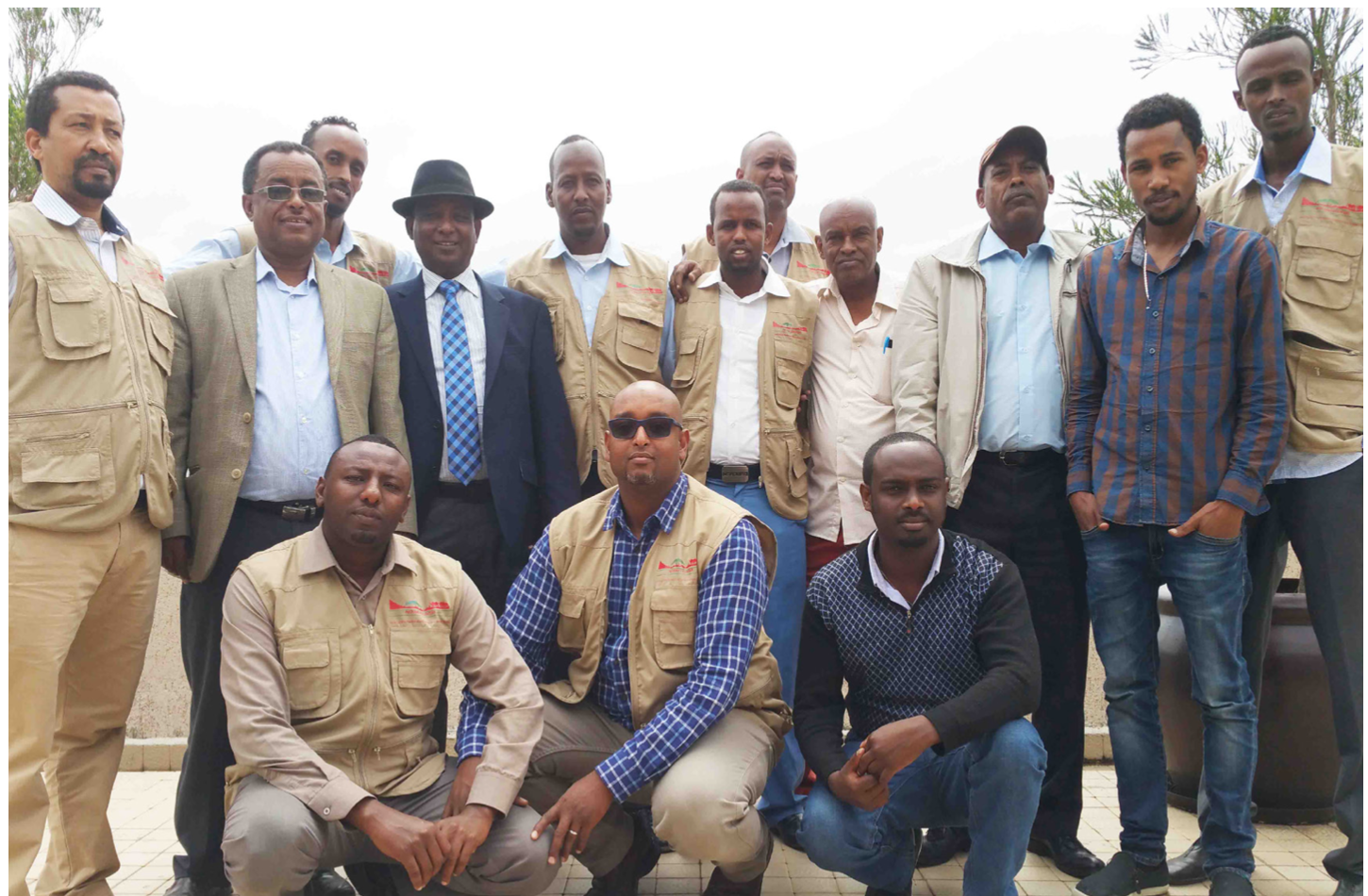
RIF RMNH project
Although Ethiopia has made impressive progress in tackling poverty in recent years and as a result has witnessed positive trends towards the MDG 2015 targets. Maternal and Neonatal health is a key area where Ethiopia remains off-track and where significant additional effort is required, especially in the ESRS. PC believes there is a significant opportunity to save the lives of mothers, newborns, and children. PC has initiated programs on maternal and neonatal health in ESRS 32 hard to reach woredas along with two other partners (NED, TIRET)
The “Waayeel Reproductive, Maternal and Newborn Health Program” has been implemented by PC a lead organization with its implementing partners TIRET; NED & INNOPIA (the technology providers). The project mainly focuses on utilization of RMNH service undertaken at 32 Pastoralist Woredas from 6 Zones of Siti, Nogob, Errer, Afdher, Dawa and Liben in ESRS. The project areas are among the hard-to-reach Woredas in the country and have been given priority by FMoH RIF project on improving the utilization of RMNH services. These targeted woredas have a total population of 1,913,603 of which 849,057 (44%) women. Waayeel or ‘ Homestead’ model is the lowest forms of structure in terms of leadership in the pastoralist communities; and this therefore is viewed as an ideal interface between the families and health care delivery.
The Overall Objective of the Project is to improve awareness, access to and uptake of reproductive, maternal and newborn health services in project implementation areas, with a focus on women and girls. Here the main focus was given to the RMNH in regards to increasing of the service seeking behavior through community mobilization; improving the attitude of women & the youth, while also empowering them and lastly decreasing barriers and bottlenecks related to provision of RMNH services through improving the skills of Health Workers, and Health System services at facility and community level.
Major Achievements
In the reporting period which is also happens to be the first year of this project, familiarization, and consultation and sensitization workshops were conducted for different stakeholders of the project so as to create community engagement, mobilization on RMNH uptake mechanisms and strategies. The workshops were participated by 600 project stakeholders.
On the other hand cascading of the same workshops were undertaken on major issues in which 12,6195 WAAYEELS including the community, government, kebele leaders, the youth, clan and religious leaders participated. The topics covered were providing knowledge on community mobilization and engagement so that they can recognize, demand and enforce women and young people’s to utilize
the RMNH/SRH rights appropriately. Discussion forums also where conducted through the Waayeel facilitated for community members aimed at identifying the problems, including existing community norms related to sexual risk behaviour, and the needs and solutions related to RMNH/ SRH and FGM, early marriage, etc. This was further cascaded up to the kabeles through community conversation and community dialogue; thereby trying to reach the lowest level of the community in order to create the required impact.
To achieve comprehensive, sustainable and more responsive RMNH, empowering women, girls & adolescents was crucial, in line with this the project have facilitated the training for 256 facilitators on Integrated Functional Adult Literacy (IFAL) classes. And with this 3,300 illiterate women have started to enroll in the IFAL classes for literacy and numeracy in the project implementation Woredas and kebeles.
To decrease the bottlenecks and barriers on the health professionals, the project have provided different training including IRT, ICCM, on job training to more than 690 HWs & HEWs in order to attain the quality related to the provision of RMNH services. To further strengthen, the health centers and the service they provide, 32 health management boards at health centers have been established/re- established while receiving orientation on their duties and responsibilities regarding RMNH services.
To strengthen the referral and existing health system 20,000 referral cards have been distributed to pregnant mothers and to date 6,500 mothers have utilized in the first ANC. Moreover, the project have made 32 Maternity Waiting Homes (MWH) functional6, and by doing this 376 pregnant mothers have utilized these MWH by increasing their chance to give birth in the health facilities. During the reporting period, a total of 19,409 mothers’ births attended by skilled health personnel’s at health facilities. On the supply side of the health provision system, the project is strongly working on fulfilling the existing services gaps such as water and electric at least to the MCH services. Hence, in this reporting period, the project have procured and installed more than 32 water storage (rotos) at different health facilities to increase access of clean water while also installing solar powered electricity at selected centers7 . The project have also enhanced the outreach service of the health system by procuring 32 motorbikes.
Adoption of Innovative Solar-Powered Mobile Clinics (SPMC) for RMNH Service uptake: In order to minimize geographic and financial barriers to RMNH services especially in hard to reach areas; PC and its partners are Piloting a Mobile Clinic.
This is providing RMNH services for poor women and adolescents in remote places. The mobile clinic is equipped with necessary equipment for diagnosis and treatment .
provide a moderate RMNH services. Being innovative, selected pastoralist villages are mapped with a nearby Woreda hospital in this case Filtu hospital for delivery of maternity care for pregnant women in the surrounding hard to reach areas.
In this reporting period, 189 mothers have received their first ANC outreach and counseling on safe delivery and feeding practices. Also more than 100 mothers have received their first dose of TT vaccine.
